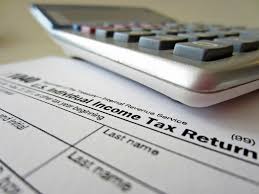Bankruptcy and Tax Debt

Chapter 7 and Chapter 13 bankruptcy
Chapter 7 provides for certain debts to be discharged. Basically, if you don’t have the assets to cover your debts, you are not responsible for unpaid debt after the bankruptcy discharge. A bankruptcy court liquidates any assets to pay off debt. In a Chapter 7 bankruptcy, tax debt is considered a priority debt, and cannot be debt that is dischargeable. In fact, the priority debts are paid first when the bankruptcy court takes control of and liquidates assets.
Tax debts are also considered a priority debt in Chapter 13 bankruptcy. Chapter 13 bankruptcy is different than Chapter 7 because it includes a repayment plan approved by the court to repay debt over time. The goal of this bankruptcy is to repay debt to the fullest extent, although some debt may be discharged. Under a Chapter 13 payment plan, tax debt must be paid in full and may not be discharged.
Can bankruptcy help with a tax debt?
Every bankruptcy case is unique, and in some cases bankruptcy may eliminate the back taxes that are owed to the IRS or state governments. However, there are specific guidelines to discharging tax debt, and because of the details in these qualifications, it is not easy to wipe out tax debt.
When can a tax debt be discharged? There are certain criteria that must be met before an income tax debt may be discharged. In a Chapter 7 bankruptcy, the bankruptcy law has specific rules:
- The tax rerun must have been filed at least two years ago.
- The tax return was not fraudulent and the taxpayer has not been found guilty of tax evasion.
- The due date for filing the tax return was at least three years ago.
- The tax assessment must be at least 240 days old.
These criteria may be applied to each year’s tax to determine if a bankruptcy may discharge the unpaid balance.
It is imperative that you consult with an attorney who is experienced in Arizona Chapter 7 and Chapter 13 bankruptcy. Our bankruptcy law firm team has experience with clients in Arizona that need bankruptcy representation due to overwhelming tax debt. Only an attorney knowledgable in the bankruptcy law will be able to determine the best course of action to alleviate your debt.
The tax rerun must have been filed at least two years ago.
Un-filed tax returns may not be discharged, so if a tax liability in question can be discharged, the taxpayer must have filed a tax return for that year. The tax return must show a date that is at least two years prior to filing for bankruptcy (the date that the taxpayer filed the return).
The tax return was not fraudulent and the taxpayer has not been found guilty of tax evasion.
You may not be guilty of tax evasion (any intentional act of evading the tax laws) nor can your tax return be fraudulent.
The due date for filing the tax return was at least three years ago.
This is referred to as the three year rule. Any tax debt that you want to discharge in a bankruptcy must be attached to a tax return that was due at least three years before filing for bankruptcy. This due date also includes any extensions that were received, which would extend the due date as well.
The tax assessment must be at least 240 days old.
Before a taxpayer files bankruptcy, the IRS must have assessed the tax at least 240 days prior to the filing. An IRS assessment can be a filed tax return (self-reported tax balance due) or an IRS final assessment from an audit stating what you owe.
Before any bankruptcy can be granted by the Arizona bankruptcy court, the petitioner must show proof of tax returns from the last four years. This required documentation must be filed before the creditor’s meeting in the case. Also, anyone wanting to file bankruptcy is required to provide the bankruptcy court with the most recent tax return.











